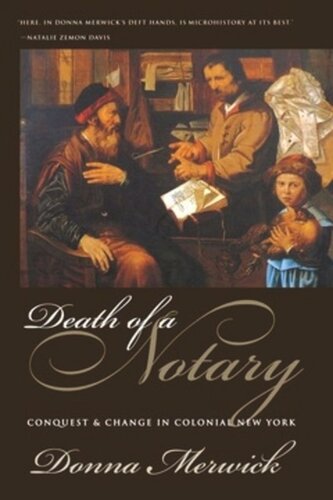

Most ebook files are in PDF format, so you can easily read them using various software such as Foxit Reader or directly on the Google Chrome browser.
Some ebook files are released by publishers in other formats such as .awz, .mobi, .epub, .fb2, etc. You may need to install specific software to read these formats on mobile/PC, such as Calibre.
Please read the tutorial at this link: https://ebookbell.com/faq
We offer FREE conversion to the popular formats you request; however, this may take some time. Therefore, right after payment, please email us, and we will try to provide the service as quickly as possible.
For some exceptional file formats or broken links (if any), please refrain from opening any disputes. Instead, email us first, and we will try to assist within a maximum of 6 hours.
EbookBell Team

4.4
82 reviews"He was the only one. He was the only man to have committed suicide in the town's seventeenth-century history." So begins Donna Merwick's fascinating tale of a Dutch notary who ended his life in his adopted community of Albany. In a major feat of historical reconstruction, she introduces us to Adriaen Janse van Ilpendam and the long-forgotten world he inhabited in Holland's North American colony. Her powerful narrative will make readers care for this quiet and studious man, an "ordinary" settler for whom the clash of empires brought tragedy.Like so many of his fellow countrymen, Janse left his Dutch homeland as a young adult to try his luck in New Netherland. After spending a few years on Manhattan Island, he moved on to the fur trading settlement today known as Albany. Merwick traces his journey to a new continent and re-creates the satisfying existence this respected burgher enjoyed with his wife in the bustling town. As a notary Janse was, in the author's words, "surrounded by stories, those he listened to and recorded, the hundreds he archived in a chest or trunk." His familiar life was turned upside down by the British conquest of the colony. Merwick recounts the changes brought about by the new rulers and imagines the despair Janse must have felt when English, a language he had never learned, replaced his native tongue in official transactions. In any military adventure, truth is alleged to be the first casualty. Merwick offers a poignant reminder that the first casualties are in fact people. As much a musing on what history obscures as what it reveals, her book is a superior work by a master practitioner of her craft.